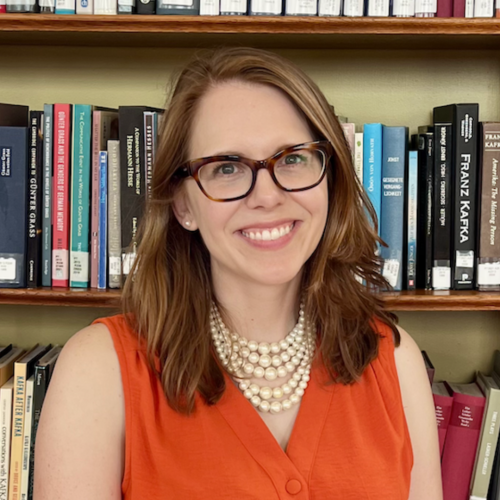March 25 update: Sanfilippo and Shvartzshnaider received the Lee Dirks Award for Best Full Research Paper at iConference 2021.
A paper coauthored by Assistant Professor Madelyn Rose Sanfilippo and Yan Shvartzshnaider (New York University) has been named a finalist for the Lee Dirks Award for Best Full Research Paper at iConference 2021. Five finalists were selected for the award, which recognizes "the most exceptional completed research paper" presented at the conference. The winner will be announced during iConference 2021, which will take place online from March 17-31.
Their paper, "Data and Privacy in a Quasi-Public Space: Disney World as a Smart City," examines the privacy implications of tracking technologies used in Disney World's theme parks and hotels. The research project began after Sanfilippo traveled with her family to Disney World and observed some of the applications of facial and voice recognition. She found Disney's use of biometrics, RFID tracking, Bluetooth tracking, and step tracking had many parallels with her research on privacy norms and governance of privacy practices with respect to emerging technologies.
"Our paper emphasizes a number of tensions between customers and Disney stakeholders regarding privacy practices, as well as where there is strong agreement with Disney about the appropriateness of certain practices, such as public safety and transportation," said Sanfilippo. "Importantly, we also emphasize that Disney customers and norms about what is appropriate at Walt Disney World are not the same as the general public or what is appropriate for other public spaces. This is an important lesson as smart cities increasingly turn to private vendors for technology and many seek to emulate or learn from early adopters, like Disney, that face relatively little backlash for their tech choices."
Sanfilippo's research empirically explores governance of sociotechnical systems as well as outcomes, inequality, and consequences within these systems. She earned her MS and PhD in information science from Indiana University.
